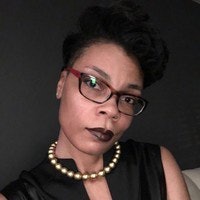In Brave New World, a dystopian novel written by author Aldous Huxley, Power is maintained through technological interventions that start before birth and last until death. Control is retained by making citizens fulfilled enough that they have no care or concern with their personal freedom. Frightening enough, Huxley’s vision has become metaphorically true to the world of United States Higher Education (USHE). You may now be thinking, in what ways?
In USHE, Power is maintained through the pyramid of institutions with the tip being comprised of a few select and prestigious colleges and the base consisting of the most inclusive institutions – with White students increasingly concentrated in the nation’s 468 most well-funded and selective four-year colleges, while Blacks and Hispanics are concentrated in the 3250 least funded and broad access two- and four-year colleges.
Similarly, Control is retained with the strategized opportunity gap that exists. Those born in the bottom ranks have difficulty moving up; although the US has long thought of itself as meritocracy – a place where anyone who gets education and works hard can make it.
 Shana T. Jones
Shana T. JonesThis Power and Control that I focus on paints a clear picture of why things go wrong and just how systematically USHE is designed to keep things just as they are. Is this a statement of hopelessness? No, but it is a statement of reality. The question now becomes, what can be done with the voices that hold little power and people who possess very little control? I answer this with the help of Brave New World where consequences of state control are a loss of dignity, morals, values and emotions, a loss of humanity holistically. The consequences are similar for those of us with small voices and little power. We simply go on to do what we can humanly do to a make a difference one day at a time. We celebrate the small victories in an effort to maintain what is left of our humanity.
With the many challenges, there are still positive influences. Comparable to the drug Soma in Brave New World – there are many influencers on USHE, but not all will hold the control or power needed to affect change on the scale in which they hope to. Soma symbolized the use of instant gratification to control the World State’s populace. It also symbolized the powerful influence of science and technology on society and represented the use of religion to control society. Those same influences impact our higher education system. More specifically, technology can completely transform higher education in the following ways as suggested by MIT Education Counselor, Greg Jackson:
- Streamline administration
- Amplify and extend traditional pedagogies, mechanisms and resources
- Make educational events and materials available outside the original context
- Enable experience-based learning
- Renew and redefine the social environment and/or
- Replace the didactic classroom experience
While transformative technology developments have the potential to add value to USHE, the issues of power and control will still remain prevalent. They will continue to affect and influence any possible developments to USHE. We must continue to strive for hierarchical decision making that represents the diverse nation in which we live and hope to thrive in – receiving equal opportunities to sit in seats of both power and control. Brave New World tells us that all humans, regardless of caste become equal after death. I can only hope that this constant fight for equality in education will not be in vein.
Nicolas Berdiaeff’s Utopias seem to be much more attainable than one would have believed in other times. And we currently find ourselves faced with a different kind of agonizing question: How can one avoid their definitive attainment? … Utopias are attainable. Life leads us towards utopias. Perhaps a new century will begin, a century in which the intellectuals and the cultivated classes will dream again of ways to avoid utopias and to return to a non-utopian society, one less “perfect” and more free
We are not striving for perfection here, but we are striving or should be pushing for everyone to be free. The term freedom alone offers us an immediate insight on how access has been and continues to be a major issue for minorities and the poor as they fare worse than their peers; reinforcing inequality. Who is really free?
“We are true to our creed when a little girl born into the bleakest poverty knows that she has the same chance to succeed as anybody else” – President Barack Obama
While this discussion adds a spin to Brave New World and its relation to USHE, it addresses the heart of the challenges that no technological developments could ever fix. Brave New World’s depiction of a society controlled by technology and artificial fertilization and an attack upon man’s trust in progress through science and mechanization – as fictitious as it is – depicts for me a USHE system that is powered by systemic racism and controlled by inequalities. We have much work to do.
Shana Jones is a doctoral student.


















